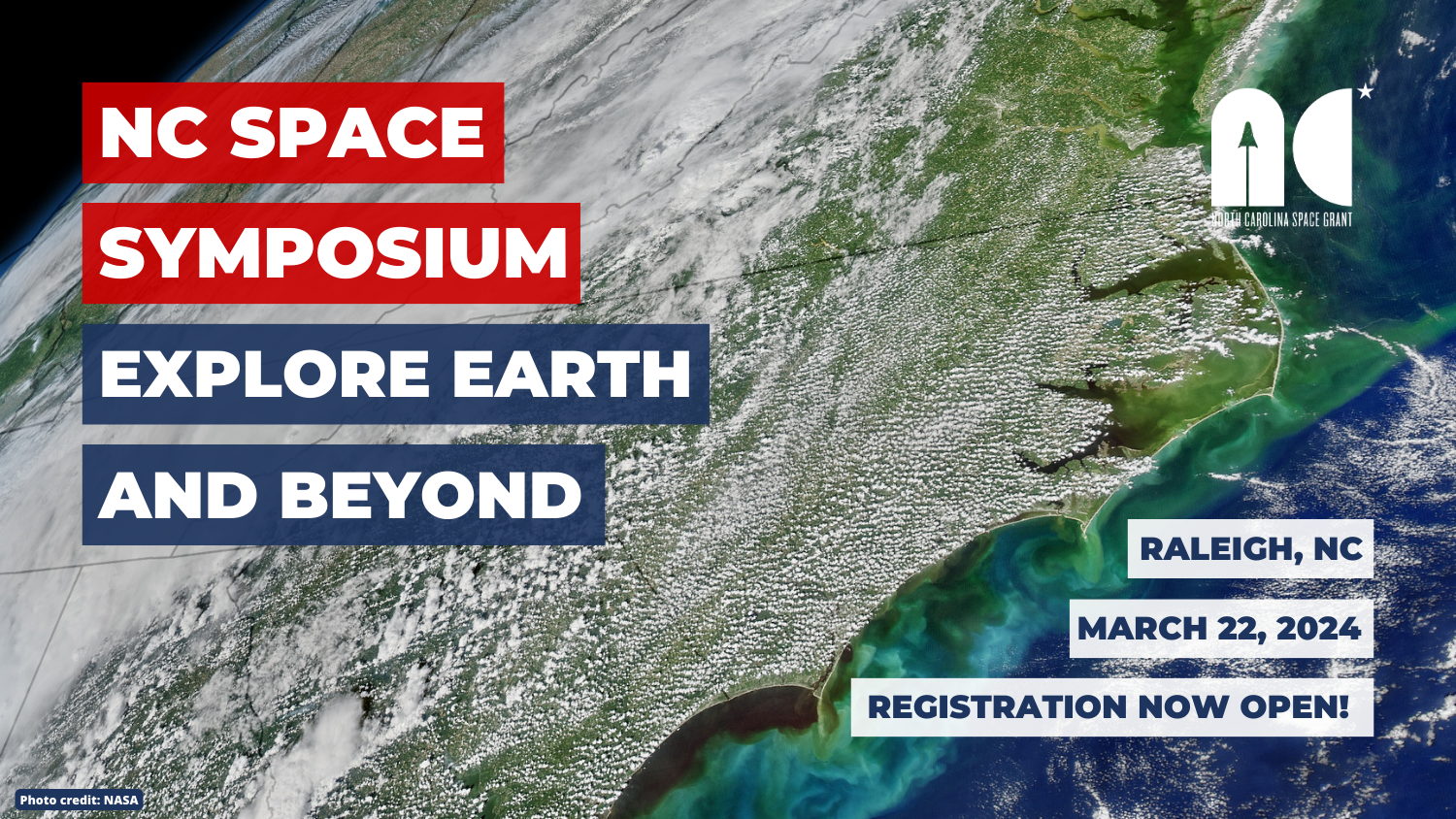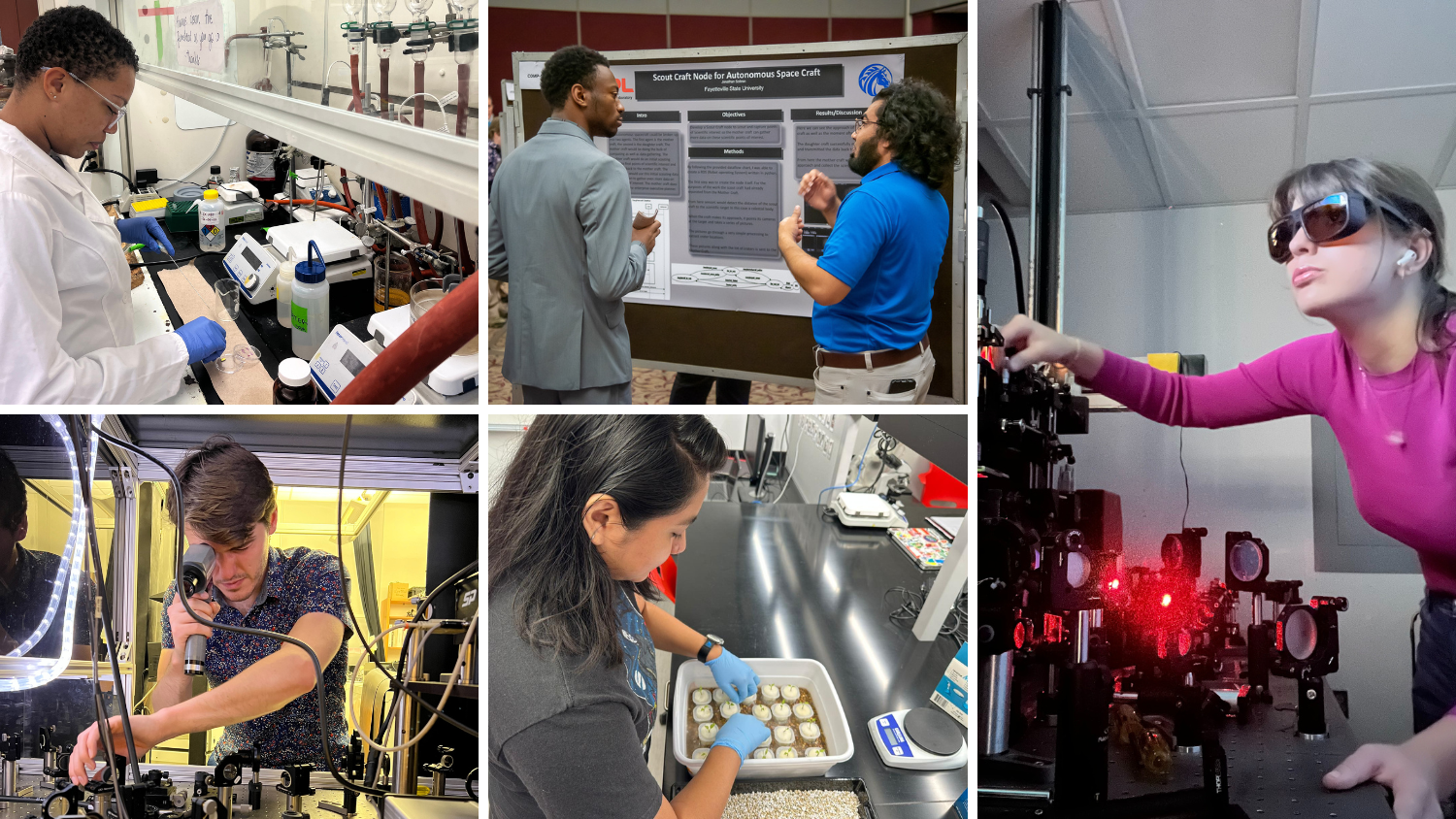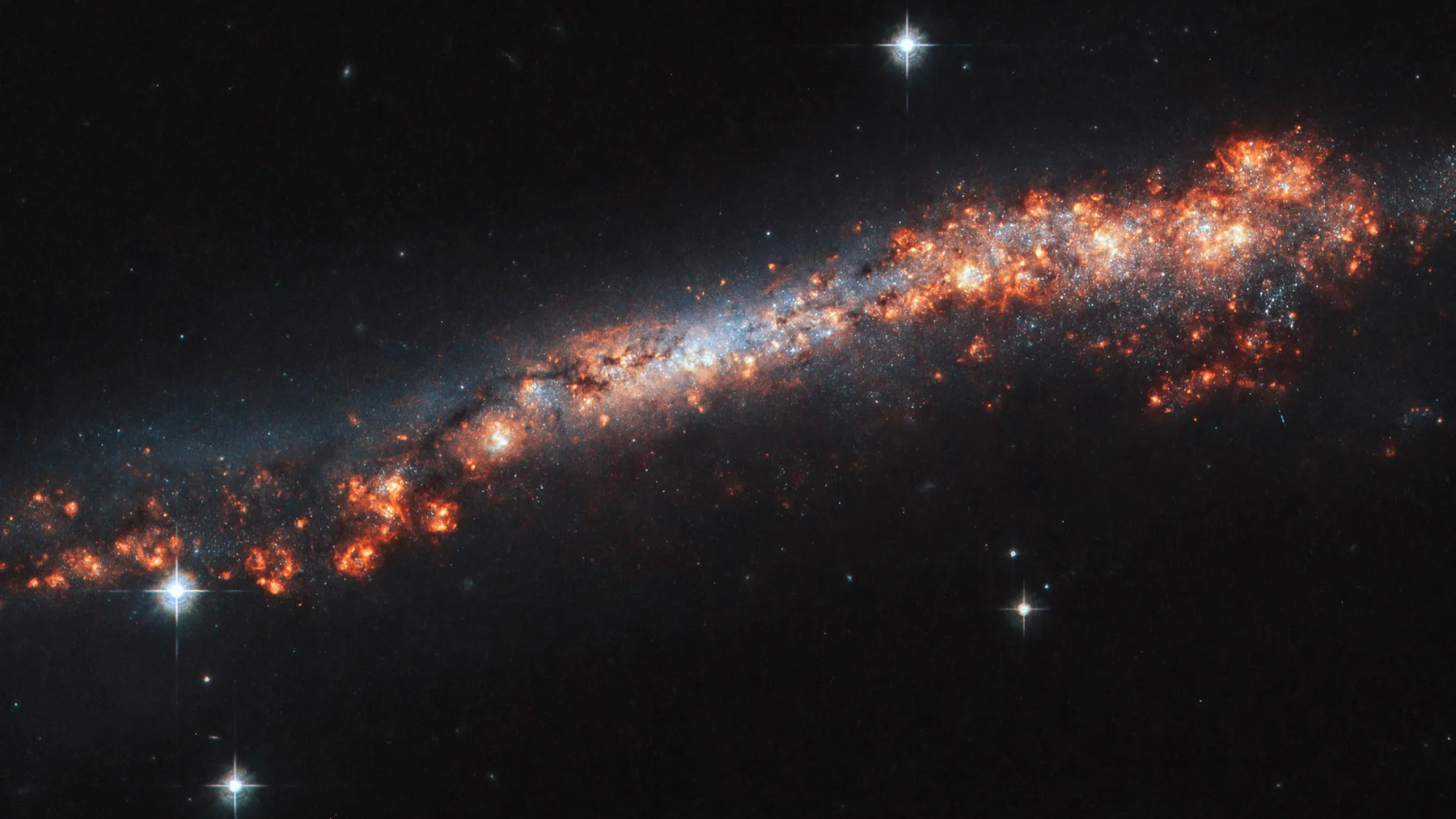Mark your calendars and make plans to attend the 2024 North Carolina Space Symposium: Explore Earth and Beyond, on Friday, March 22, at the McKimmon Center on NC State University’s campus. Registration is now open and available through March 15, 2024.
“This annual event showcases our NC Space Grant’s direct connections with NASA, while also celebrating our current student researchers and our alumni who are using their skills in a variety of roles,” notes Jobi Cook, associate director of NC Space Grant.
The signature event brings together and features experts, researchers and students with the goal of sharing the latest NASA research. It also celebrates student research and provides an avenue for valuable networking. Oral and poster presentations, lightning talks, and a workshop will showcase a variety of NASA-relevant topics.
Register Now Online
Rates:
- Full-time Student (precollege, college) attendee: $35
- General attendee: $75
Speakers at a Glance
Erica Alston, program executive in NASA’s Earth Science Division, will open the day with an exciting talk about NASA missions and how to get involved. Alston takes part in several NASA earth science flight project missions, including PACE (Plankton, Aerosol, Cloud, Ocean Ecosystem), NISAR (NASA-ISRO Synthetic Aperture Radar), and PREFIRE (Polar Radiant Energy in the Far-InfraRed Experiment).
Following the opening session, a panel of NC researchers who are studying the Earth from space will speak about their projects. This panel will be moderated by Katie Caruso, NC center lead at NASA DEVELOP National Program, NOAA National Centers for Environmental Information.
- Douglas Rao, research scientist at NC Institute for Climate Studies, will speak about the use of long-term satellite imagery, data science, and cloud computing for climate studies.
- Leila Hashemi Beni, associate professor of remote sensing and GIS at NC Agricultural and Technical State University, is a recent NASA grant awardee. Hashemi Beni will share about the use of remote sensing and geospatial data science for flood mapping and impacts.
- Tamlin Pavelsky, professor of global hydrology at UNC Chapel Hill, is the hydrology science lead for NASA’s Surface Water and Ocean Topography (SWOT) mission. He’ll share about the mission and its applications.
The luncheon session will feature Paul Byrne, director of NASA’s Planetary Data Systems (PDS) Geosciences Node and associate professor of earth, environmental, and planetary sciences at Washington University in St. Louis. Byrne will speak about the use of remote sensing data and physical models, and their applications to explore other planets, specifically Venus, to better understand Earth.
Celebrating Student Research
As a celebration of student research, sessions also will feature student poster presentations and lightning talks. NC Space Grant’s scholars and fellows are researching a wide range of areas including from astrophysics to nanoengineering and biological sciences. Approximately 55 students will present their research. Eight students will give a lighting talk.
“The prospect of not only presenting my diligently conducted research but also immersing myself in a diverse array of specialized topics from fellow enthusiasts is truly exhilarating,” says Victoria Whidden, NC Space Grant undergraduate research scholar. “I look forward to engaging with a community of individuals who share the same passion for exploration and discovery.”
Open Science 101
To end the day, student attendees will have the option to learn about the potential of open science and attend an Open Science 101 workshop. According to the U.S. government, “open science is the principle and practice of making research products and processes available to all, while respecting diverse cultures, maintaining security and privacy, and fostering collaborations, reproducibility, and equity.”
To begin the session, Nathan Morrow, associate professor in international health and sustainable development at Tulane University, will explore open science principles through the lens of an environmental justice case study.
Then, NASA professionals will join Morrow to lead the hands-on, interactive workshop:
- Elizabeth Joyner, community coordinator at NASA’s Earth Science Data Systems Communications, Science Systems and Applications, Inc.
- Cynthia Hall, support scientist for NASA’s Early Career Research Program in Earth Sciences Division
As part of the workshop, attendees will learn about the current landscape of open science, the benefits, and challenges as well as gain insights using case studies.
This workshop aligns with NASA’s Transform to Open Science (TOPS) initiative, which works to transform agencies, organizations, and communities to an inclusive culture of open science. NASA recently released an open science curriculum as part of the TOPS initiative to introduce those beginning their open science journey. It is free and available to the public. At the completion of the course, learners receive a NASA Open Science digital badge, which can be presented on social media, portfolios, resume, and more.
Update March 13: The workshop is now full, but students can still begin their open science journey with NASA TOPS Open Science 101 curriculum. General registration is still open until March 15.
Consider Sponsorship Opportunity
NC Space Grant is a consortium of academic institutions that promote, develop, and support aeronautics and space-related science, engineering and technology education and training in North Carolina. We partner with NASA, industry, nonprofit organizations and state government agencies to conduct programs designed to equip the current and future aerospace workforce of North Carolina.
Help support this work by becoming a sponsor of the 2024 NC Space Symposium. Four levels are available:
- Jupiter level sponsorship – $5,000
- Earth level sponsorship – $2,500
- Mars level sponsorship – $1,000
- Moon level sponsorship – $500
To discuss sponsorship opportunities, contact Jobi Cook at jobi_cook@ncsu.edu.
☽
- Categories:



